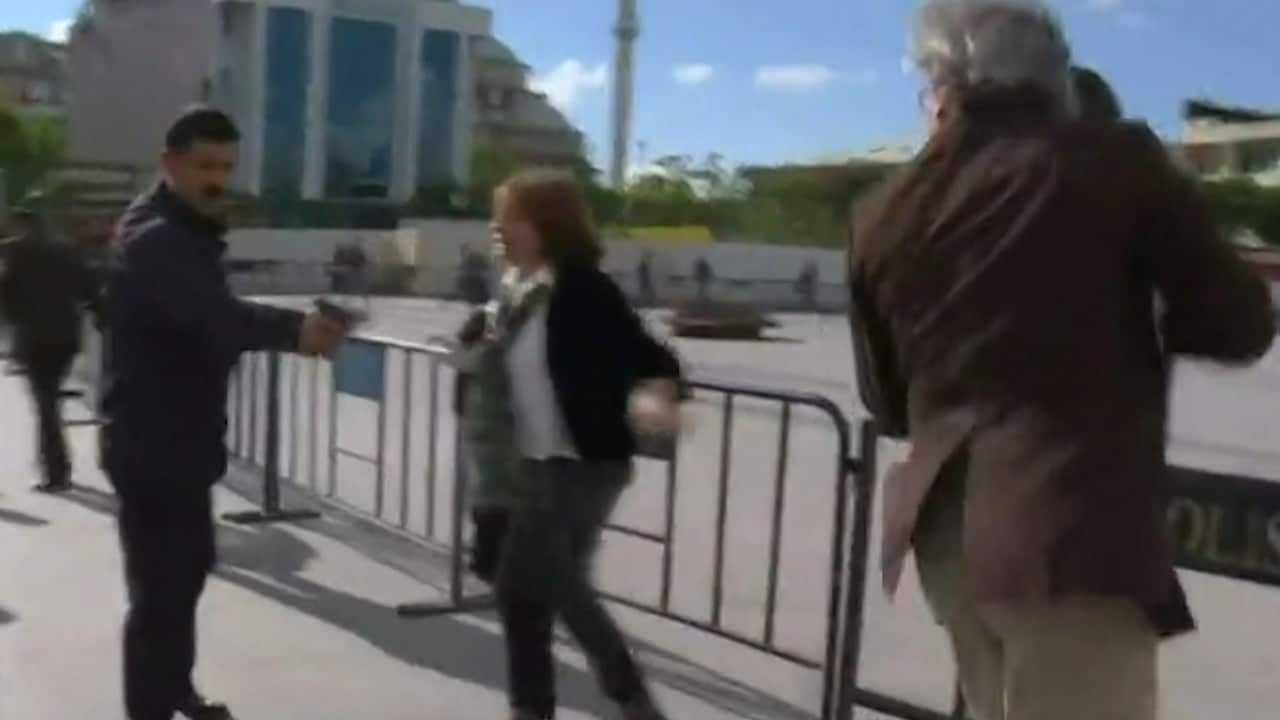The man alleged to have shot at Can Dündar has been named in the media as Murat Şahin, with four other people also arrested. According to newspapers, he bought a gun for 12,000 Turkish Lira (more than AU$ 5,000).
He’s reported to be a 40-year-old unemployed man, who called Dündar ‘traitor’ before he fired twice. The consensus is that he aimed at Dündar’s legs and therefore did not intend to kill him.
But none of these details or other allegations regarding his motives have come from official court documents. Reporters witnessed the attack, and also get suspects’ details from their police sources anonymously. This is the usual practice in Turkey.

And the way the attack has been reported shows how the media in Turkey is deeply divided. One side says the attack and the jail sentence is a serious attack on press freedom and the other says it is all just theatre.
Government supporter newspapers have tried to downplay the attack. Sabah and Zaman (formerly an opposition paper, now under government-appointed administration) placed the story at the bottom of their first page and both used same headline ‘An attack like a piece of theatre’.
Takvim described the attack as a ‘live performance’. Güneş’s headline was ‘Ultimate theatre’. Guneş also suggested Dündar’s wife tackled the attacker while Can tried to escape, suggesting he was a coward.
The opposition media call the outlets that support the government ‘pool media’, suggesting they all get their stories from the same government sources and all publish the same thing. All 8 to 10 papers have had exactly the same front page headline on at least two occasions in the past.
Newspapers and opinion writers who are opposed to the government are referring to Tayyip Erdoğan’s earlier words about cases including Dündar’s: “They will pay.”
Can Dündar is interviewed in Dateline story on press freedom in Turkey, Enemy of the State?
These outlets thinks the assassination attempt is a part of an ongoing campaign to silence and scare opposition media. They say the message is: “If you don’t shut up, this is what happens next.”
Another notable point of view is that of Umit Kivanc, a well-known intellectual, who says it’s one way to tell opposition media: “We are not killing… yet."
Hear more from SBS in Turkish daily on SBS Radio, and watch Dateline's story above.
Dateline is an award-winning Australian, international documentary series airing for over 40 years. Each week Dateline scours the globe to bring you a world of daring stories. Read more about Dateline
Have a story or comment? Contact Us


